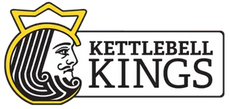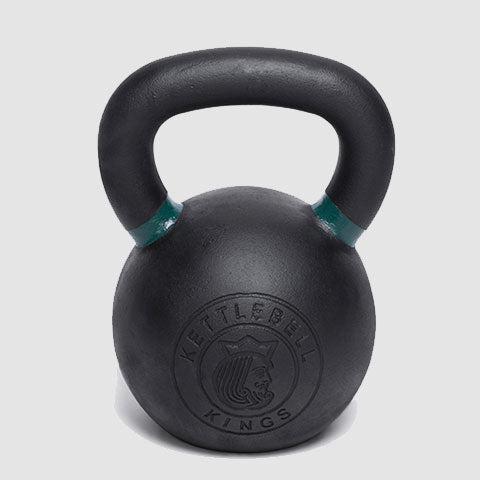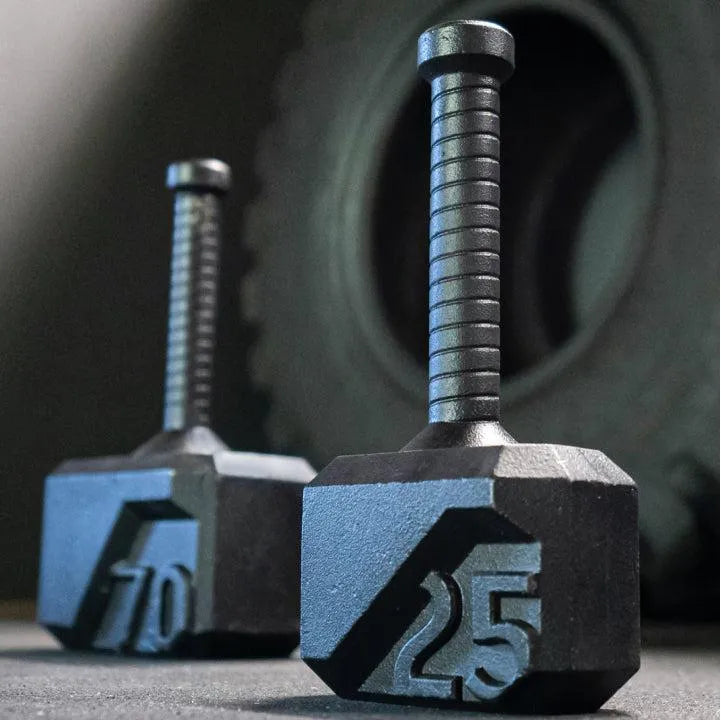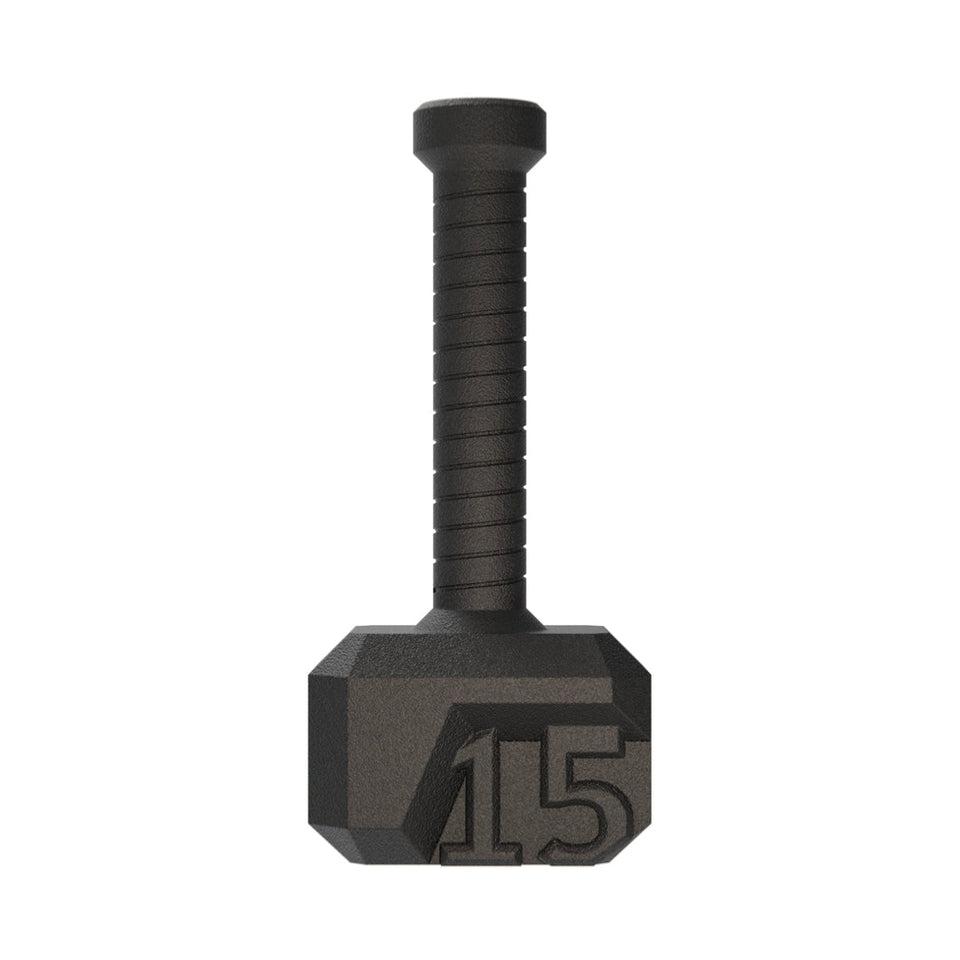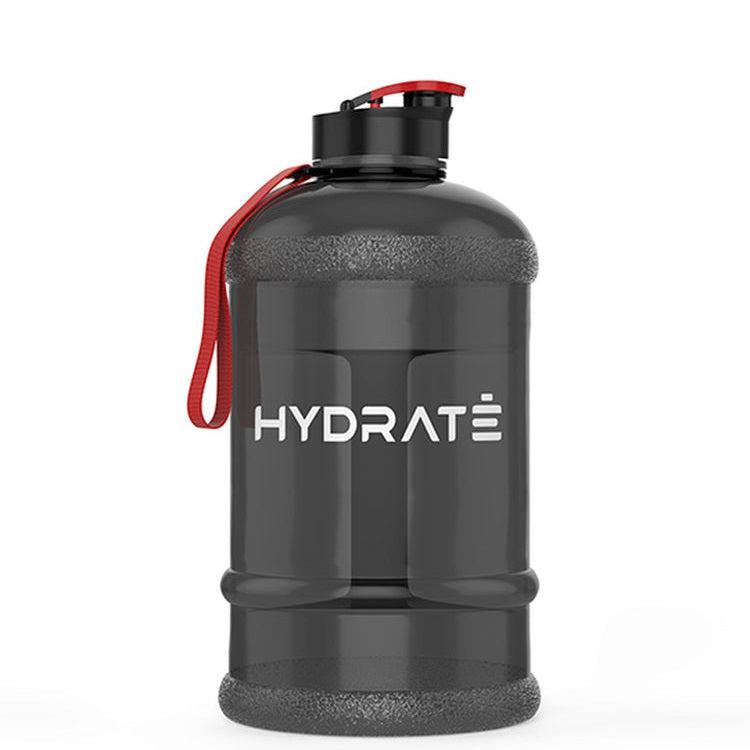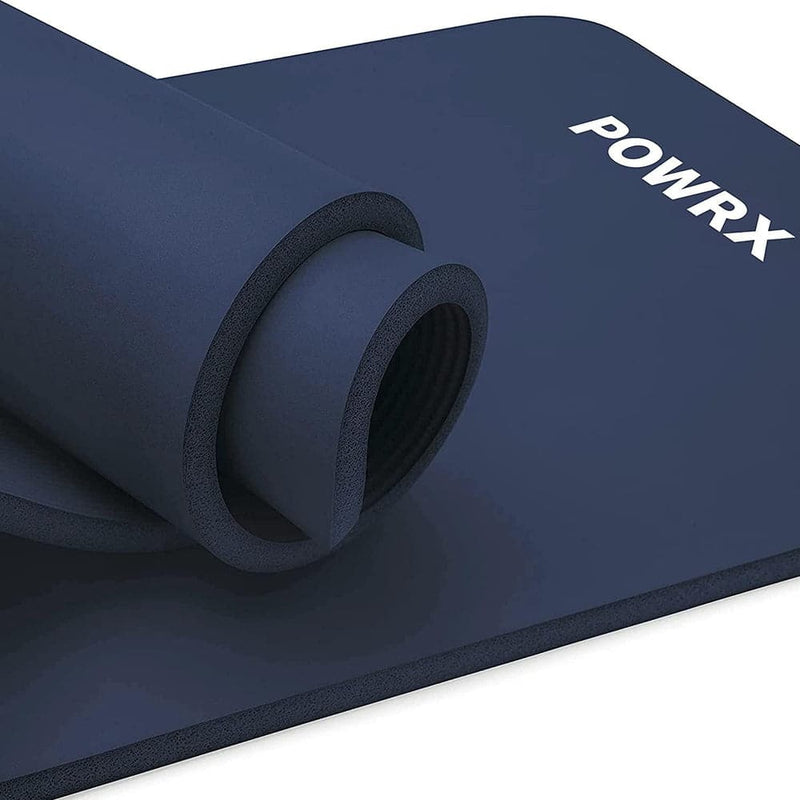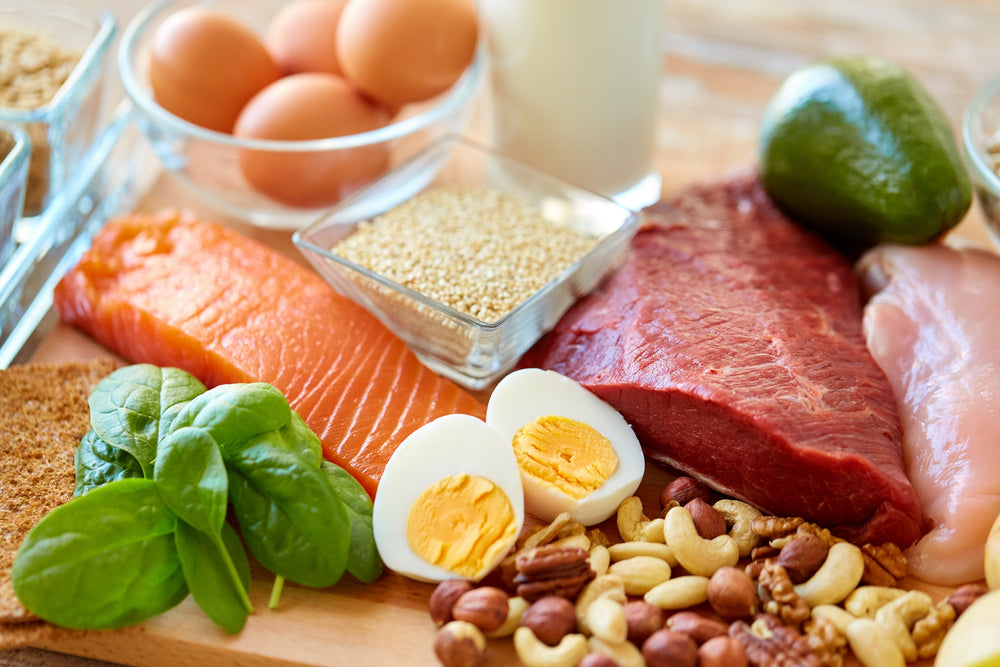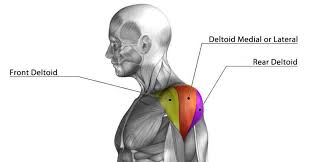As a sports nutritionist who has worked with competitive bodybuilders for over a decade, I've seen firsthand how proper nutrition can dramatically impact muscle growth and body composition. The journey to achieving your desired physique is not solely dependent on rigorous training regimens or lifting heavy weights; it also hinges significantly on what you put into your body. The food you consume serves as the fuel for your workouts, the building blocks for muscle repair, and the essential nutrients needed to optimize recovery.
In this comprehensive guide, we will delve into the nuances of a hypertrophy diet, which is specifically tailored to support muscle gains while minimizing fat accumulation. We'll explore the foundational components of nutrition, including the crucial role of macronutrients—proteins, carbohydrates, and fats—and how they interact to promote muscle growth and overall health. Understanding how to balance these macronutrients is vital for anyone looking to enhance their physical performance and achieve a sculpted physique.
The Foundation of Muscle-Building Nutrition
Building muscle requires a combination of three essential nutritional components: adequate calories, optimal protein intake, and proper nutrient timing. Each element plays a distinct role in supporting muscle hypertrophy and achieving your bodybuilding goals.
1. Protein: The Building Blocks of Muscle
Protein is the most crucial macronutrient for muscle growth, as it provides the amino acids needed for repairing and building muscle tissues. Without sufficient protein, your body cannot effectively synthesize new muscle, no matter how hard you train.
- Optimal Protein Intake: Current research suggests that individuals engaged in resistance training should consume 1.6-2.2 grams of protein per kilogram of body weight per day. For example, a person weighing 180 pounds (82 kg) would need about 131-180 grams of protein daily.
- Distribution of Protein Intake: It's important to spread your protein intake evenly across the day, aiming for 4-6 meals with 20-40 grams of protein each. This distribution ensures a constant supply of amino acids, optimizing muscle protein synthesis.
- Types of Protein: Include a mix of fast-digesting proteins like whey (great for post-workout recovery) and slow-digesting proteins like casein (ideal for nighttime consumption) to maximize muscle repair and growth.
2. Carbohydrates: Fueling Your Workouts
Contrary to low-carb trends, carbohydrates are essential for bodybuilding because they fuel your workouts and aid recovery.
- Energy for Training: Carbs provide the primary energy source for high-intensity workouts, allowing you to perform at your best during weightlifting sessions.
- Protein-Sparing Effect: Adequate carbohydrate intake ensures that protein is used for muscle building rather than being converted to energy, which can occur in carb-deprived states.
- Insulin and Nutrient Uptake: Carbohydrates stimulate insulin production, which plays a key role in transporting nutrients (like amino acids and glycogen) into muscle cells for repair and growth.
For optimal results, aim for 4-7 grams of carbohydrates per kilogram of body weight, adjusting based on your training intensity and personal tolerance.
3. Healthy Fats: Hormonal Support and Recovery
Fats often get overlooked, but they are critical for hormone production, inflammation management, and overall health. Proper fat intake supports testosterone production, a hormone crucial for muscle growth.
- Testosterone Production: Healthy fats, especially those from sources like fatty fish, avocados, and nuts, are vital for producing testosterone, which directly influences muscle gain.
- Anti-Inflammatory Effects: Omega-3 fatty acids, found in fish oil and flaxseed, help reduce inflammation, aiding in recovery and joint health after intense training.
- Recommended Intake: Aim for 0.5-1.5 grams of fat per kilogram of body weight, focusing on sources of healthy fats like olive oil, avocado, nuts, seeds, and fatty fish.
Calculating Your Muscle-Building Calories
To build muscle, you must be in a caloric surplus, meaning you consume more calories than you burn. This surplus gives your body the energy it needs to repair muscle tissue and synthesize new muscle fibers.
1. Calculate Your Maintenance Calories
Your maintenance calories represent the number of calories you need to maintain your current weight without gaining or losing. This can be calculated using a simple formula:
- Moderate Activity Level: Multiply your body weight (in pounds) by 15. This provides a rough estimate of your daily caloric needs based on a moderately active lifestyle.
2. Add a Caloric Surplus for Muscle Gain
To build muscle, you need to add 300-500 calories to your maintenance level. This surplus ensures your body has enough energy to support muscle hypertrophy without accumulating too much fat.
- Example: For a 180-pound individual, maintenance calories would be 180 × 15 = 2,700 calories. Adding 400 calories for muscle gain brings the total to 3,100 calories per day.
3. Monitor and Adjust
Track your progress by monitoring weight gain and body composition. Aim for a slow and steady weight increase of 0.5-1 pound per week. If you gain too quickly, reduce the surplus to minimize fat gain; if progress stalls, add more calories.
Optimal Food Choices for Muscle Growth
The quality of your food is just as important as the quantity. Focus on nutrient-dense whole foods that provide a wide array of vitamins, minerals, and macronutrients to support muscle growth and overall health.
1. Protein Sources
Choose lean, high-quality protein sources to meet your daily requirements:
- Animal-Based: Lean meats (chicken, turkey, lean beef), fish (salmon, tuna), eggs, and dairy (Greek yogurt, cottage cheese).
- Plant-Based: For those preferring plant-based options, try quinoa, legumes, tofu, and plant-based protein powders.
2. Complex Carbohydrates
Complex carbs provide sustained energy, fiber, and essential nutrients:
- Top Choices: Sweet potatoes, brown rice, oatmeal, quinoa, whole grain pasta, fruits, and vegetables.
3. Healthy Fats
Incorporate healthy fats to support hormonal health and recovery:
- Best Sources: Avocados, nuts, seeds, olive oil, fatty fish, and natural nut butters.
Meal Timing and Structure
When you eat can be just as important as what you eat. Proper meal timing ensures that your body has the fuel it needs for both performance and recovery.
1. Pre-Workout Nutrition (2-3 Hours Before)
A balanced pre-workout meal provides the energy needed for a productive session. This meal should include:
- Protein: 30-40g (chicken breast, turkey, fish)
- Carbs: 40-50g (sweet potatoes, brown rice)
- Low Fat: 10-15g (olive oil, avocado)
Example meal: Chicken breast, sweet potato, and steamed vegetables.
2. Post-Workout Nutrition (Within 30 Minutes)
The post-workout window is crucial for muscle recovery. A combination of fast-digesting protein and carbohydrates helps replenish glycogen stores and repair muscle fibers.
- Protein: 30-40g of fast-digesting protein (whey protein)
- Carbs: 40-60g of quick-absorbing carbohydrates (banana, rice cakes)
Example meal: Whey protein shake with a banana and rice cakes.
3. Daily Meal Structure
For consistent muscle gains, structure your meals throughout the day:
- Breakfast (7:00 AM): A protein-rich, high-carb meal.
- Mid-morning Meal (10:00 AM): A light snack with protein and carbs.
- Lunch (1:00 PM): A well-balanced meal with lean protein, complex carbs, and healthy fats.
- Pre-workout Meal (4:00 PM): A smaller meal rich in protein and moderate carbs.
- Post-workout Shake (6:30 PM): Fast-digesting protein and carbs for recovery.
- Dinner (7:30 PM): A final large meal with protein, carbs, and fats for overnight recovery.
Supplementation for Muscle Growth
While whole foods should be the foundation of your nutrition, supplements can fill in gaps and enhance muscle growth.
1. Essential Supplements
- Whey Protein: Convenient and fast-digesting, whey is perfect for post-workout recovery and hitting daily protein goals.
- Creatine Monohydrate: Proven to increase strength, creatine supports muscle volume and performance when taken consistently (5g daily).
- Essential Amino Acids (EAAs): Consuming EAAs during workouts promotes muscle protein synthesis, helping maintain muscle mass during intense training.
- Vitamin D3 and Fish Oil: These support overall health, recovery, and hormone production. Fish oil, rich in omega-3 fatty acids, also aids in reducing inflammation.
2. Optional Supplements
- Beta-Alanine: Increases endurance by buffering lactic acid in muscles.
- Citrulline Malate: Enhances blood flow and improves workout performance.
- HMB: Helps prevent muscle breakdown, particularly during periods of calorie restriction.
- Casein Protein: Slow-digesting, making it ideal for nighttime to support muscle repair during sleep.
Foods to Limit or Avoid
1. Processed and Junk Foods
To maximize muscle gain and minimize fat accumulation, limit processed foods that provide empty calories and poor nutritional value.
- Avoid: Foods high in trans fats, excessive alcohol, added sugars, and deep-fried items.
2. The "80/20 Rule"
For long-term sustainability, aim to follow the "80/20 rule":
- 80% of your calories should come from nutrient-dense whole foods.
- 20% can allow for flexibility, where you indulge in preferred foods without compromising overall progress.
Clean Bulking Strategies
For effective muscle gain without excessive fat accumulation, the goal should be a “clean bulk” — focusing on high-quality, nutrient-dense foods while maintaining a moderate caloric surplus.
1. Progressive Eating
Start with a small caloric surplus (300-500 calories above maintenance) and increase as needed based on your progress. This approach prevents excessive fat gain.
2. Lean Protein and Carbs Emphasis
Prioritize lean protein sources and complex carbs to ensure muscle recovery and growth without adding unnecessary fat.
3. Adjusting for Activity Levels
One critical component of a clean bulk is aligning your food intake with your activity levels. On training days, you might need to increase your caloric intake to support muscle recovery, while on rest days, slightly reduce your calories to avoid unnecessary fat gain.
- Training Days: Increase carbohydrate intake to fuel your workouts and promote muscle recovery. Focus on fast-digesting carbs post-workout to replenish glycogen stores.
- Rest Days: Prioritize protein and healthy fats, slightly reduce carbohydrates, and maintain overall caloric intake just above your maintenance level to support muscle repair.
4. Hydration: The Overlooked Factor
Staying hydrated is crucial for muscle function and recovery. Water plays a pivotal role in nutrient transport, digestion, and muscle recovery. Dehydration can lead to decreased performance, impaired recovery, and even muscle cramps.
- Daily Water Intake: Aim for at least 3-4 liters of water per day, depending on your body size and activity level. Increase this amount on training days to compensate for water loss through sweat.
5. Meal Prepping for Success
One of the most effective strategies for sticking to your clean bulk is meal prepping. Planning and preparing your meals in advance ensures that you always have healthy, muscle-building foods ready to eat, reducing the temptation to reach for junk food.
- Meal Prep Tips: Cook in bulk, store in airtight containers, and portion out your meals for the entire week. Include lean proteins, complex carbs, and healthy fats in each container.
Sample Meal Plan for Muscle Gain
Here’s a structured sample meal plan to help you achieve your muscle-gain goals. Adjust portion sizes based on your caloric needs.
Breakfast (7:00 AM)
- Scrambled Eggs: 4 eggs
- Oatmeal: 1 cup with mixed berries and honey
- Avocado: ½ sliced
- Green Tea or Coffee: No added sugar
Mid-Morning Snack (10:00 AM)
- Greek Yogurt: 1 cup
- Almonds: 1 handful (about 20 almonds)
- Banana
Lunch (1:00 PM)
- Grilled Chicken Breast: 6-8 oz.
- Quinoa: 1 cup
- Steamed Vegetables: Broccoli and carrots
- Olive Oil: Drizzled over vegetables
Pre-Workout Meal (4:00 PM)
- Brown Rice: 1 cup
- Lean Ground Turkey: 6 oz.
- Spinach Salad: Dressed with olive oil and lemon
Post-Workout Shake (6:30 PM)
- Whey Protein: 30g protein
- Rice Cakes: 2-3 with peanut butter
- Banana
Dinner (7:30 PM)
- Salmon: 6 oz.
- Sweet Potato: 1 large, baked
- Asparagus: Steamed with olive oil
Before Bed (10:00 PM)
- Casein Protein Shake: 30g protein
- Mixed Nuts: 1 handful (for slow-digesting fats and protein)
Common Pitfalls in Muscle-Building Nutrition
Even with a solid nutrition plan, there are several mistakes that could hinder your muscle gains. Here are some pitfalls to avoid:
1. Inconsistent Caloric Intake
Many people fail to gain muscle simply because they don’t eat enough consistently. Your body needs a constant supply of energy (calories) to build muscle. If you skip meals or don't maintain your caloric surplus, your body will struggle to stay in an anabolic state.
- Solution: Stick to your meal plan and avoid skipping meals. Consider adding snacks between meals to meet your calorie and nutrient needs.
2. Relying Too Much on Supplements
Supplements can be helpful but should never replace whole foods. Over-reliance on supplements like protein powders or mass gainers can result in missing out on essential nutrients from real foods.
- Solution: Focus on whole foods for the majority of your meals and use supplements as an addition to your diet, not a substitute.
3. Ignoring Nutrient Timing
When you eat is almost as important as what you eat. Missing out on key nutrient windows (such as post-workout) can slow down your recovery and muscle growth.
- Solution: Prioritize your pre- and post-workout meals, ensuring you consume high-quality proteins and carbohydrates within an hour of training.
4. Inadequate Sleep and Recovery
Even the best nutrition plan won’t work if your body isn’t getting enough rest. Muscle growth happens during recovery, and sleep is essential for muscle repair and hormone production.
- Solution: Aim for 7-9 hours of quality sleep each night to support optimal recovery and muscle growth.
Success Stories: Real-Life Results
1. Jake’s Transformation
Jake was an experienced lifter but struggled to put on lean muscle mass. After adjusting his caloric intake and focusing on clean, whole foods, Jake gained 15 pounds of muscle in 6 months. His secret? Consistency with his diet and sticking to a well-structured meal plan.
2. Sara’s Clean Bulk
Sara was hesitant to eat in a caloric surplus, fearing she’d gain fat. After working with a sports nutritionist, she implemented a clean bulk strategy, focusing on lean proteins, complex carbs, and healthy fats. In 4 months, Sara gained 10 pounds of muscle while keeping her body fat in check.
3. Mike’s Recovery Boost
Mike had always trained hard but ignored his post-workout nutrition. After introducing a whey protein shake and fast-digesting carbs immediately after workouts, he saw faster recovery and improved muscle gains, adding 12 pounds of muscle in 5 months.
Conclusion
Building muscle isn’t just about lifting weights—it’s about fueling your body with the right nutrients at the right times. A clean, well-structured nutrition plan is the foundation of any successful muscle-building journey. By focusing on high-quality proteins, complex carbohydrates, healthy fats, and proper hydration, you’ll provide your body with the tools it needs to repair, recover, and grow stronger.
Consistency is key. Sticking to your meal plan, adjusting your intake based on your activity levels, and avoiding common pitfalls will ensure you stay on track. Remember, muscle growth is a gradual process that requires patience, dedication, and fine-tuning of both your workouts and your diet.
With the right approach to nutrition, you can maximize your muscle-building potential, achieve your goals, and transform your body. Let your diet work hand-in-hand with your training, and watch the gains follow.
